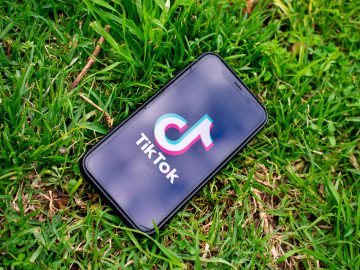
Sneksy / iStock.com
Commitment to Our Readers
GOBankingRates’ editorial team is committed to bringing you unbiased reviews and information. We use data-driven methodologies to evaluate financial products and services – our reviews and ratings are not influenced by advertisers. You can read more about our editorial guidelines and our products and services review methodology.

20 Years
Helping You Live Richer


Trusted by
Millions of Readers
According to a 2024 study from Talker, 53% of Americans plan to take financial advice from FinTok — the financial side of TikTok. Topics they are most interested in include: budgeting, saving, investing, credit, credit scores, inflation and cash flow.
While TikTok influencers can (and often do) have good financial advice, not everything on the platform is gold. Even advice that seems helpful on the surface isn’t always as straightforward or effective as it might seem.
Here’s some of the worst financial advice from TikTok and what you might want to do instead.
Advice: Never Pay Off Your House
According to TikTok influencer Kris Krohn (@kriskrohn), you should never pay off your house. Instead, you should take out a home equity line of credit (HELOC) that’s tied to the equity in your home and use that to purchase another property (like a rental).
Essentially, you won’t need to save extra money for a down payment. You can just use the HELOC. Assuming you get a low interest rate and high enough return, you could see positive cash flow.
There are several issues with this advice. There’s no guarantee on returns, potentially high HELOC interest rates can seriously cut into your profit margin, you’ll still need to pay the second property’s mortgage and you run multiple other risks (like problems finding renters).
Fe2014: Dave Ramsey would Not approve this
As for what to do instead, financial guru David Ramsey suggests paying off your mortgage early while still investing 15% of your income for retirement. Having a fully paid-off house gives you more financial stability and can save you money each month.
Advice: Write Off a Private Chef as a Business Expense
TikToker Karlton Dennis (@karltondennis) said a private chef isn’t tax deductible, but if he hosts daily business dinners and calls a private chef in to cook for them, he can deduct the cost. This method, he said, lets him afford a private chef year-round for meals for himself, his wife, family, friends, and business clients — some of whom are also family members.
Tax giant, H&R Block took to his comments with their take on his advice: “For anyone in the comments: don’t do this.”
Some business expenses are legitimately tax deductible, but family dinners (and the private chefs who prepare them) are not. If you want to find tax write-offs, consult a CPA.
Advice: Use Your Allowance to Buy Real Estate
According to Grant Cardone, every 15-year-old kid should use their allowance to get into real estate investing. A kid who gets an allowance of $300 a month (Cardone’s example) should use that money to buy a piece of real estate that pays them $30 a month. That kid should then only use the $30, but never touch the initial $300 investment.
When asked how a normal young person would get that kind of money, Cardone cited options like an allowance, side hustle, or side job.
While investing in real estate has its merits, this method isn’t exactly feasible for the average person. Not every parent can afford to give their kid a $300 allowance, and not every kid can — or even should — work a side job at such a young age. Cardone also doesn’t elaborate on how someone would buy property with such a small sum of cash.
A potentially less risky option for kids is to invest that money in a certificate of deposit with a high yield. Or the parents can invest it on their child’s behalf until they’re old enough to decide how they want to invest it.
Advice: Buy Property Every Year With 5% Down
Another TikToker gave advice on how to build a real estate empire. Here’s how he said to do it:
- The first year, buy a two- to four-unit property with just 3.5% down using an FHA loan.
- While living there for the first 12 months, get people to rent out the other units to cover your mortgage payment.
- During the second year, buy a condo or townhome with another 5% down and live in that home for 12 months.
- The third year, purchase a small single-family home for 5% down and rent out last year’s property.
- Repeat this process every year to build your real estate portfolio, but make sure each new property is better (or more valuable) than the last.
According to him, the trick here is to have the property as your primary residence and occupy it for at least that first year. You’ll also need to provide reasons why you’d want to live in the most recent purchase as your primary residence instead of one of the others — like proximity to work.
While this method could work for some, it comes with several risks. For one, you might not find reliable tenants who pay. Or you might not always get approved for financing. Mortgage interest rates, property taxes, insurance, and HOA fees can also make it harder to make solid returns.
Following Dave Ramsey’s advice again, start by becoming a homeowner and paying off the mortgage on your personal residence. Only invest in real estate if you’re debt-free and can pay in cash.
Sources:
Content Curated Originally From Here





